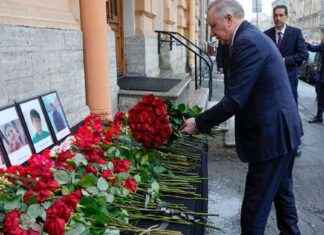The political parties, as all organisms, are subjected to a life cycle: they are born and die. By the way develop, grow and strengthen. Also sometimes merge or split. And, finally, disappear after a period of decline, going to be the subject of the Story. In this sense, perhaps what you’re looking at in the game of Pedro Sanchez and his political course and institutional levels is not a moment of confusion or strategic mismatch ideological circumstantial, but the same end of the PSOE as such. This does not mean that the PSOE are going to disappear tomorrow. Of course, will continue to occupy the pages of national policy of the newspapers and will continue attracting the interest of analysts. You can even win the next general election. The political inertia plays a role. However, this is compatible with claiming that, as a political project, the PSOE, which was reborn in the Transition has been exhausted.
Since the late seventies, the PSOE was able to incarnate a project progressive is compatible with the rest of the social-democratic parties in europe. The PSOE of Felipe González and Alfonso Guerra was able to win the 1982 election, keeping the country in NATO and finish negotiating the entry into the European Community because it was the expression of a vision of State and of a project of modernization of vocation national and international roots. A project that expressed the values of the Transition and of the cold War. Since the resignation of the socialist party for the marxism, and, with it, the discourse of opposition to the system as an instrument for the conquest of power is not held in a vacuum. On the contrary, reflected both the consensus reformer of the Transition as the influence of the Socialist International, presided over by the “German friend” Willy Brandt, the main driver of the renewal programme of the social-democratic parties of southern Europe in the wake of the SPD at Bad Godesberg.
however, since the PSOE lost the references of the Transition and the cold War, the first voluntary and the second compulsory basis, their political project was in crisis and, with it, the two relating to your identity. If the first meant the vocation to compete and mobilize within the constitutional consensus, the second established a territory ideologically well-defined in which socialism Spanish became recognizable in Europe. That is why the words of the speaker of the Senate of the PSOE in reference to the manifestation of Alsasua mean much more than an out-of-tune, a slip up or a single point of failure. Are the best reflection of the deep crisis of identity of a party who shows an inability structural to face the drift iliberal of nationalism and of populism.
The direction of José Luis Rodríguez Zapatero inaugurated the new strategy of socialist power based on the de-legitimization of the right and the relegitimación of nationalisms. Questioning, for this reason, the Transition, the constitutional consensus, the form of the State and its plant territorial. Pedro Sanchez, despite his dabbling into the initial with the european socialism of the sign or liberal, has shown to be the best interpreter of your strategy. So, today socialism Spanish is reduced to the condition of the drive belt both of the interests as of the diagnostics of historical and political parties that have encouraged The Moncloa. Some diagnoses that, paradoxically, deny the best story of the PSOE. The power, therefore, is. But, what about the PSOE?
According to the criteria of
Learn more






